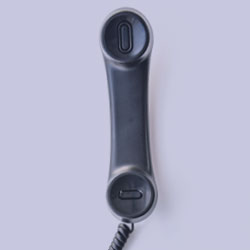Is Your Phone System Ripe for an Upgrade?
 In our last post, we discussed some of the technology considerations associated with relocating a business. One thing to look at is your phone system. If it’s not providing the features and functionality you need, it may make sense to upgrade rather than move the existing system to your new location.
In our last post, we discussed some of the technology considerations associated with relocating a business. One thing to look at is your phone system. If it’s not providing the features and functionality you need, it may make sense to upgrade rather than move the existing system to your new location.
Even if you’re not planning an office relocation, you should evaluate your phone system regularly. Traditional PBXs have been considered long-term investments with a useful life that far exceeds most computer equipment. As a result, it’s not unusual for organizations to hang onto their phone systems for 10, 15, even 20 years or more. However, a system that old carries a high risk of failure.
As organizations have migrated from traditional PBXs to IP phone systems, perceptions of the phone system lifecycle has persisted. It is true that a robust IP phone system will continue to meet basic business needs for many years. However, organizations that put off IP communications system upgrades are missing out on numerous financial and operational benefits. Current IP phone systems can drive significant cost savings while improving the reliability, scalability and flexibility of the communications infrastructure.
Cost savings has always been a key driver for IP phone system adoption. Organizations can cut telecom charges by uniting branch locations and teleworkers over data networks and effectively routing inbound calls. The cost of moves, adds and changes are reduced because organizations can handle these basic administrative functions internally. And by enabling end-users to plug their IP phones into any available data port, IP phone systems provide greater flexibility and efficiency.
The latest IP telephony solutions allow calls placed on a mobile device to be routed over a cellular data or Wi-Fi network. This further reduces telecom costs by eliminating international roaming and direct dial costs on mobile devices. It also allows organizations to “rightsize” the number of desk phones by giving employees the option to use mobile phones exclusively.
Many of the productivity-enhancing features previously available only in expensive, top-of-the-line PBX equipment come standard with today’s IP phone systems. These features include advanced call routing, “find me/follow me” call forwarding, call waiting, three-way calling, voicemail and caller ID. In addition, IP telephony offers unified communications features that integrate voice, email, presence, instant messaging and various forms of conferencing, increasing productivity, improving processes and better supporting today’s mobile workforce.
IP phone systems have proven to be highly reliable — often even more reliable than aging PBXs. As with any equipment, however, the reliability of an IP telephony system begins to fade with age. Organizations with equipment that is no longer supported by the manufacturer are especially at risk. By upgrading, organizations can eliminate this concern.
Few organizations have the knowledge and experience to complete a VoIP implementation. A a “do-it-yourself” implementation can impact network, email and voice services, costing time and money. Atlantic-IT.net can help ensure that your network infrastructure can support voice calls with the highest quality of service. We will then design and implement a solution that is robust, scalable, and capable of meeting your business objectives. If your phone system is showing its age, contact Atlantic-IT.net to start planning an upgrade.





